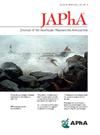A cross-sectional look at rural pharmacists' perceptions on implementing a depression screening service in their pharmacies: A brief report
IF 2.5
4区 医学
Q3 PHARMACOLOGY & PHARMACY
Journal of the American Pharmacists Association
Pub Date : 2025-05-13
DOI:10.1016/j.japh.2025.102421
引用次数: 0
Abstract
Background
Rural areas are in desperate need of access to mental health care. Rural pharmacists can begin to fill these gaps by offering depression screening services. However, despite evidence suggesting improved patient outcomes and positive reception to pharmacist-led depression screening services, implementation has remained low. Research on barriers toward implementing depression screening services and preferred implementation strategies is necessary to increase the implementation of this service.
Objective
Investigate barriers, facilitators, and preferred implementation strategies to implementing a depression screening service in rural pharmacies.
Methods
An exploratory cross-sectional survey was conducted electronically amongst rural pharmacists in Alabama and Mississippi. The survey was developed and pretested with a stakeholder panel to identify rural pharmacist confidence, barriers or facilitators, stigma toward patients with mental health conditions, and preferred implementation strategies toward implementing a depression screening service. Likert-type questions from 1 (strongly disagree) to 5 (strongly agree), a rank-choice question, and open-ended questions were used. Quantitative and qualitative data were analyzed descriptively, with qualitative data also analyzed thematically.
Results
A total of 84 rural pharmacists participated in the study. Confidence toward performing depression screenings and using a depression screening tool (the Patient Health Questionnaire-9) was low with a mean of 2.5 [SD = 1.1] and 2.0 [SD = 0.9] out of 5, respectively. The most strongly endorsed and highest ranked barrier was lack of time. Every implementation strategy was scored primarily as “helpful” or “very helpful.” The most cited qualitative theme was financial concerns.
Conclusion
Pharmacists have low confidence in performing a depression screening service and several structural barriers such as time and financial concerns. Future research should perform cost benefit analyses of implemented depression screening services and assess whether training programs improve confidence toward offering these advanced care services.
农村药剂师对在其药房实施抑郁症筛查服务的看法的横断面研究:一份简短报告。
背景:农村地区迫切需要获得精神卫生保健。农村药剂师可以通过提供抑郁症筛查服务来填补这些空白。然而,尽管有证据表明患者对药剂师主导的抑郁症筛查服务的结果有所改善和积极接受,但实施情况仍然很低。有必要研究实施抑郁症筛查服务的障碍和首选实施策略,以增加这项服务的实施。目的:探讨农村药房开展抑郁症筛查服务的障碍/促进因素及优选实施策略。方法:以电子方式对阿拉巴马州和密西西比州农村药师进行探索性横断面调查。该调查由利益相关者小组制定并预先测试,以确定农村药剂师的信心、障碍/促进因素、对精神健康状况患者的污名,以及实施抑郁症筛查服务的首选实施策略。李克特类型的问题从1(非常不同意)到5(非常同意),一个等级选择问题和开放式问题。定量数据和定性数据进行描述性分析,定性数据进行专题分析。结果:共有84名农村药师参与研究。对进行抑郁症筛查和使用抑郁症筛查工具(PHQ-9)的信心较低,平均值分别为2.5 [SD=1.1]和2.0 [SD=0.9](满分为5分)。最强烈支持和排名最高的障碍是缺乏时间。每个实现策略的评分主要是“有帮助”或“非常有帮助”。被提及最多的定性主题是财务问题。结论:药剂师对开展抑郁症筛查服务的信心较低,并且存在时间和资金等结构性障碍。未来的研究应该对实施的抑郁症筛查服务进行成本效益分析,并评估培训计划是否能提高提供这些高级护理服务的信心。
本文章由计算机程序翻译,如有差异,请以英文原文为准。
求助全文
约1分钟内获得全文
求助全文
来源期刊
CiteScore
3.30
自引率
14.30%
发文量
336
审稿时长
46 days
期刊介绍:
The Journal of the American Pharmacists Association is the official peer-reviewed journal of the American Pharmacists Association (APhA), providing information on pharmaceutical care, drug therapy, diseases and other health issues, trends in pharmacy practice and therapeutics, informed opinion, and original research. JAPhA publishes original research, reviews, experiences, and opinion articles that link science to contemporary pharmacy practice to improve patient care.

 求助内容:
求助内容: 应助结果提醒方式:
应助结果提醒方式:


